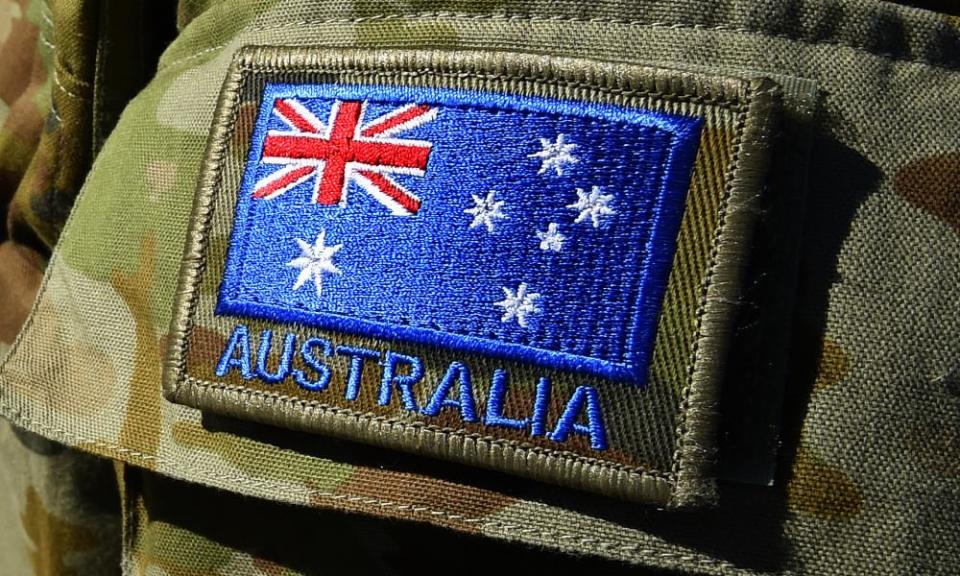Australian veteran compensation scheme contributes to suicide rate, inquiry finds

Australia’s veteran compensation scheme is “so complicated” it can contribute to the suicide rate of former members of the Australian defence force, the royal commission into defence and veteran suicide has found.
Urging more resources for the Department of Veterans’ Affairs to process a backlog of almost 42,000 veteran claims within two years, the commission’s interim report tabled on Thursday also raises concerns about “cultural issues” within the defence force which may be leading to heightened risk of suicide.
Matt Keogh, the minister for veteran affairs, apologised to veterans for the failings of the department outlined in the report, saying there remained “significant work” to be done to improve the beleaguered system.
Of the 13 recommendations made by chair, Nick Kaldas, and commissioners James Douglas and Peggy Brown, most relate to the longstanding issue of claim processing times which had been linked to the incidence of suicide among veterans.
The report said it was clear Australia’s veteran compensation and rehabilitation legislative system “is so complicated that it adversely affects the mental health of some veterans – both serving and ex‑serving ADF members – and can be a contributing factor to suicidality.”
More than 1,200 ADF veterans and serving personnel died by suicide between 2001 and 2019, according to the Australian Institute of Health and Welfare.
The report said the department should be given the resources it needs to deal with the current backlog of claims, saying this should be eliminated by 31 March 2024.
To help achieve this, the department needs to advise the government on its resourcing needs, and a staff cap needs to be abolished.
There is also a recommendation to simplify and harmonise veteran compensation and rehabilitation legislation, with the government urged to draft a bill for a new framework by the end of next year.
Ahead of the commission’s final report in mid-2024, the report also called for increased protections for people engaging with the commission, saying there needed to be changes to the Royal Commission Act to ensure that serving ADF members could disclose sensitive personal information, and changes to Criminal Code so that information can be conveyed to the royal commission without being in breach of secrecy offences.
Other recommendations go to administrative issues within the department, including improving access to information for veterans and their families, changes to trauma practices for those seeking DVA information and education programs for families of veterans seeking information.
The interim report also said it had been “constrained – unreasonably so” by parliamentary privilege and public interest immunity claims in its investigations, saying it had been unable to review previous investigations conducted by the Australian National Audit Office and parliamentary committees.
Speaking on ABC radio on Thursday, Kaldas was also critical of the department for not providing requested information, after previously expressing concern it had been “difficult to obtain”.
When asked if that information had been more forthcoming in recent months, Kaldas replied: “Not as yet.
“There’s a number of problem areas we’re trying to navigate … privacy, national security issues and so on.”
Keogh acknowledged concerns had been raised about access to information, but stopped short of endorsing the interim report’s recommendations. He said he had “not formed a view” on those calls.
He said that if there had been failings in the way the Department of Veterans’ Affairs and defence had operated, he was “deeply sorry”.
“To people that have felt they have not got the treatment that they deserve … I apologise for that. It wasn’t under our watch, but as a government of this country, veterans always deserve the best and we should be delivering that.”
The report notes that there have been more than 50 previous reports, and more than 750 recommendations made, regarding the topic of suicide among serving and ex-serving members of the ADF that have not been acted on.
It also raised concerns about “a range of cultural issues within the ADF”, and the negative impacts they had and continue to have.
The commissioners flagged that they would “have more to say about culture” in the final report.
Keogh said on Thursday that the government was seeking to get on top of the backlog and had committed an extra 500 staff to process claims “as soon as possible”.
“I don’t have a timeframe by when we will be able to get through that backlog as yet, but getting greater clarity on that is something that I’m really committed to getting at the moment,” he said.
He also said the government would not need to wait for the final report due in June 2024 to act on the interim report’s recommendations as a “priority”.
The opposition leader, Peter Dutton, said the report highlighted the need to return the portfolio of veterans affairs into cabinet, and said the matters raised had “been going on for decades”.
“The way our country provides support to our veterans should be a source of national pride, not shame. I want to make sure we can support the government in every reasonable step they take,” he said.
• In Australia, the crisis support service Lifeline is 13 11 14. In the UK and Ireland, Samaritans can be contacted on freephone 116 123, or email jo@samaritans.org or jo@samaritans.ie. In the US, the National Suicide Prevention Lifeline is at 800-273-8255 or chat for support. Other international helplines can be found at befrienders.org

 Yahoo News
Yahoo News 